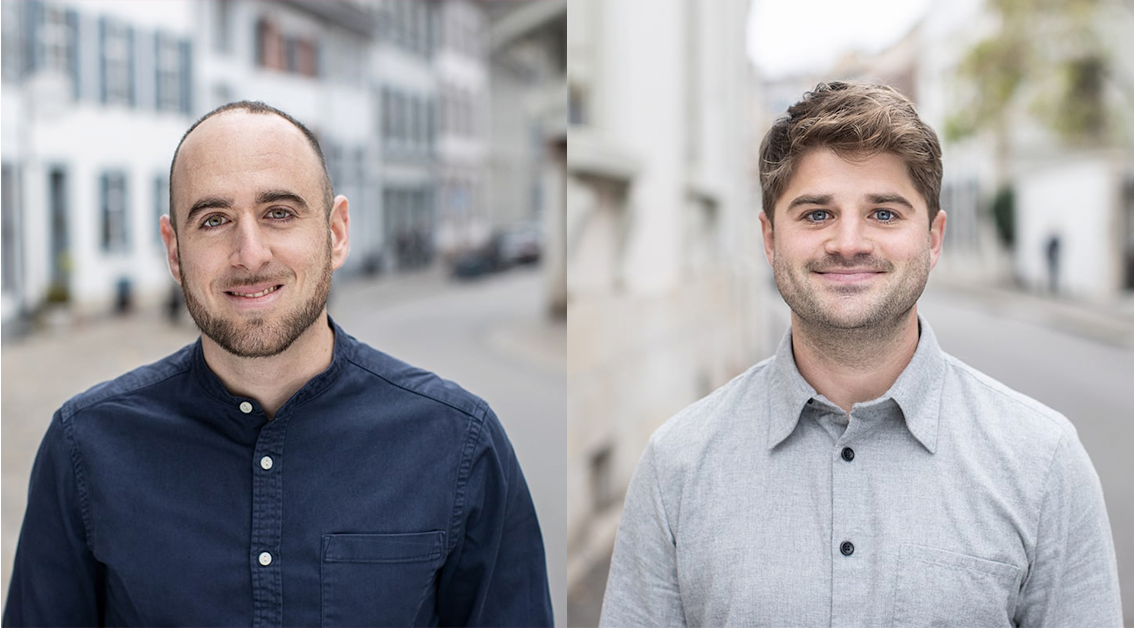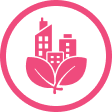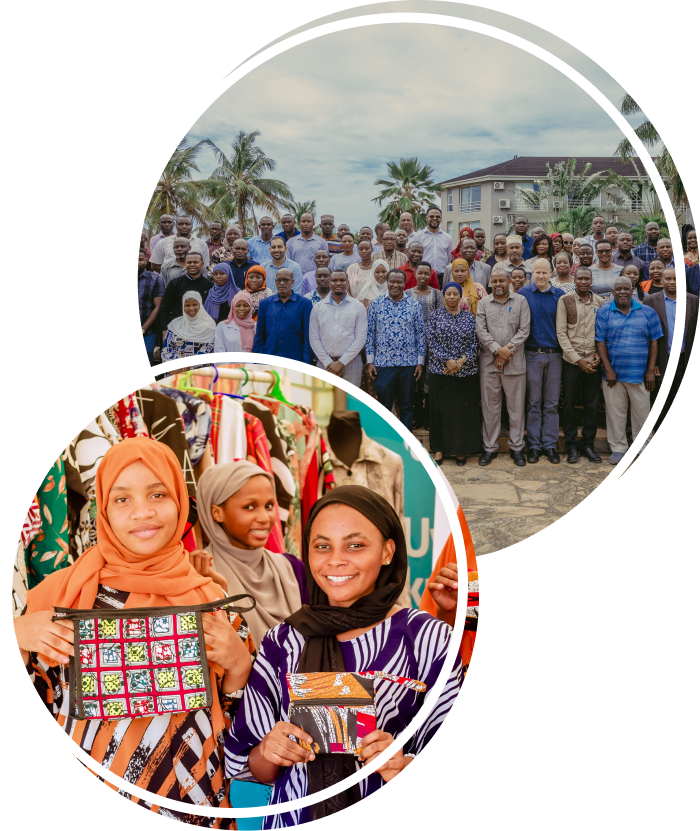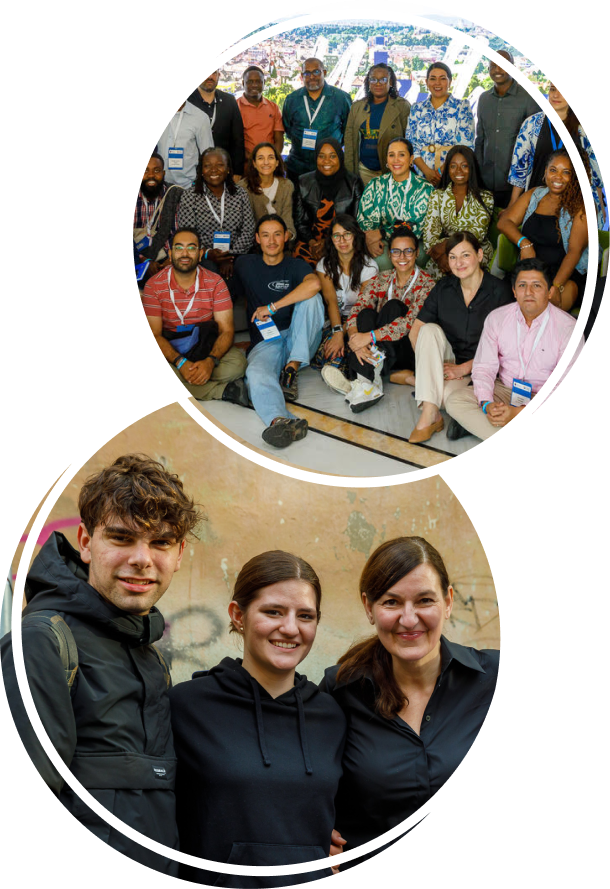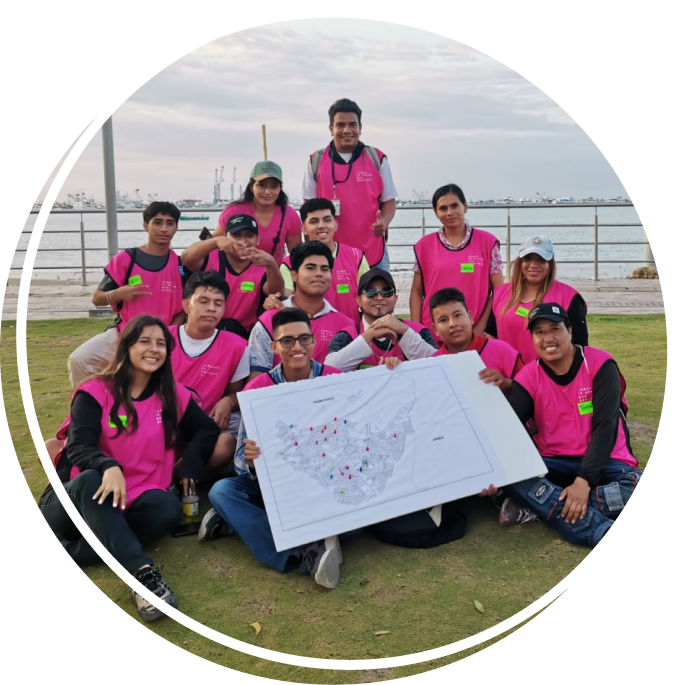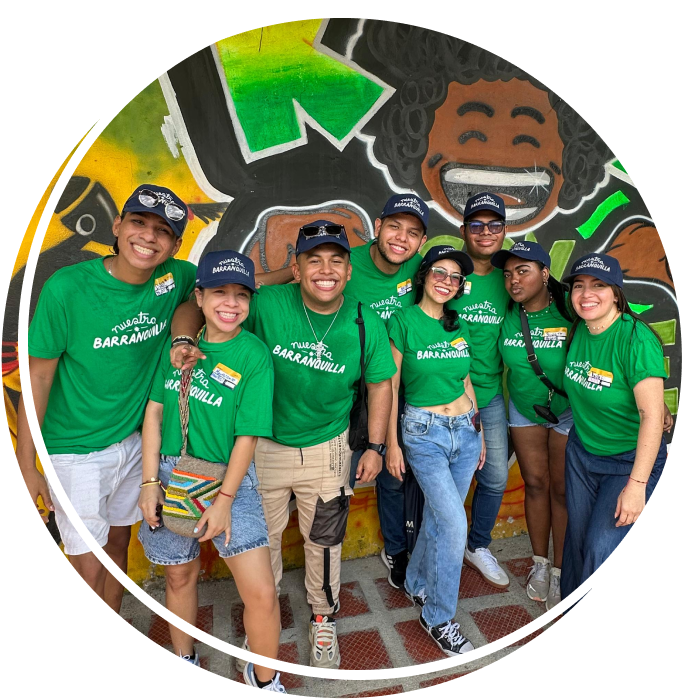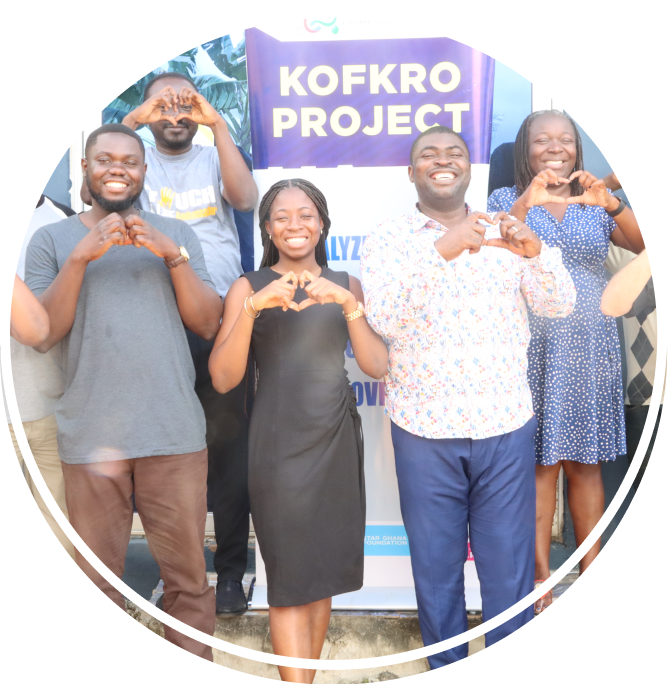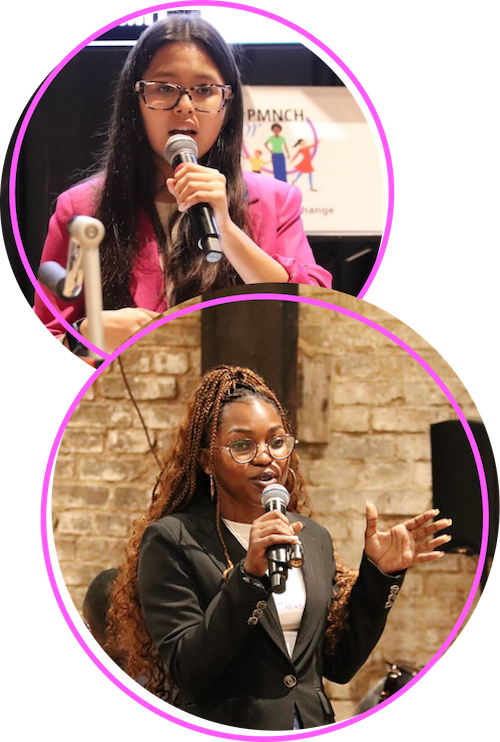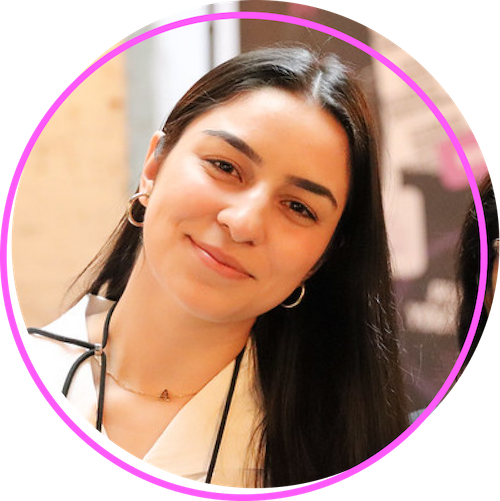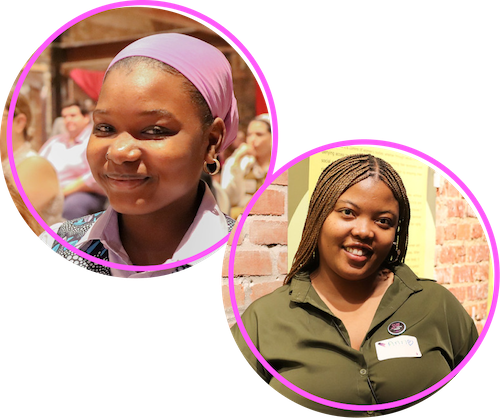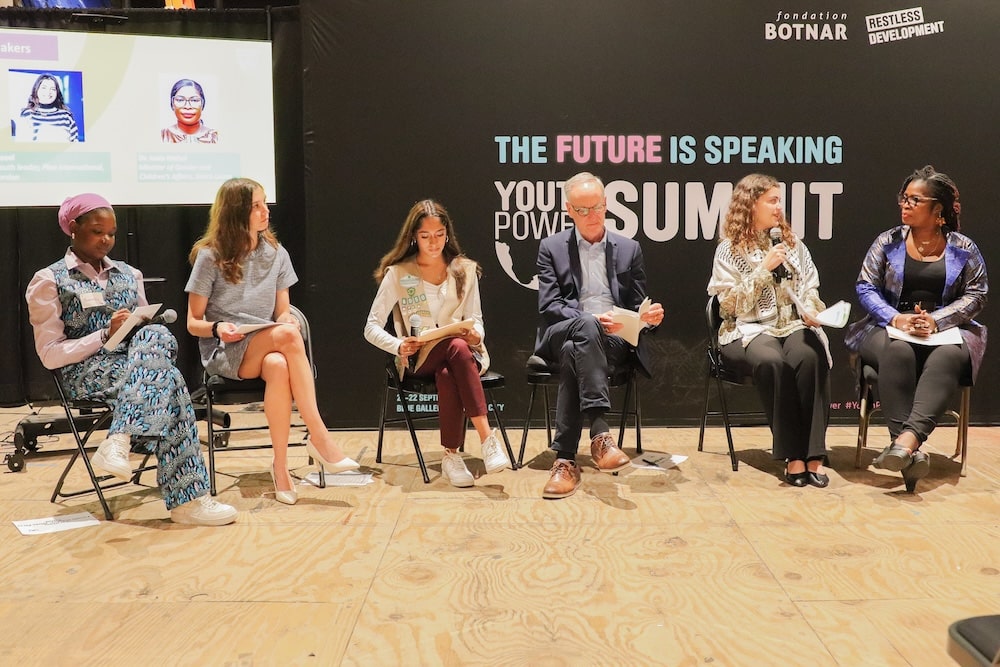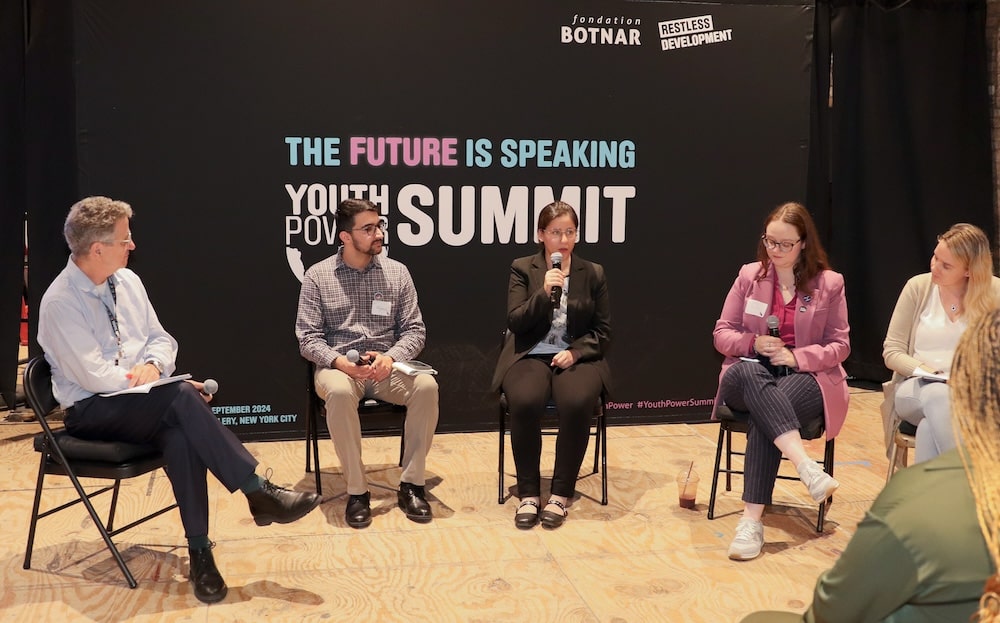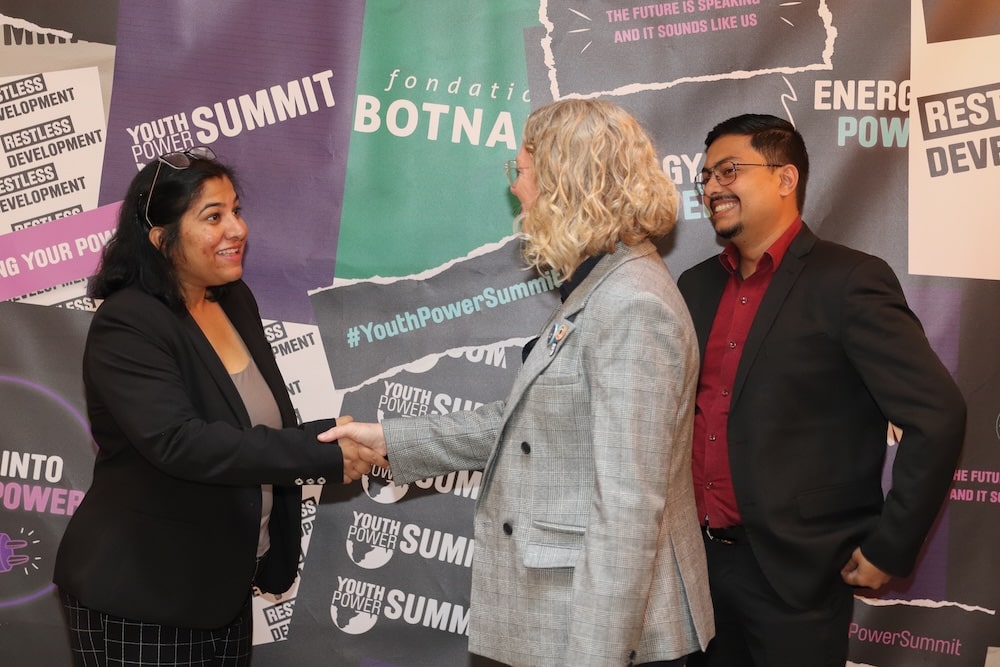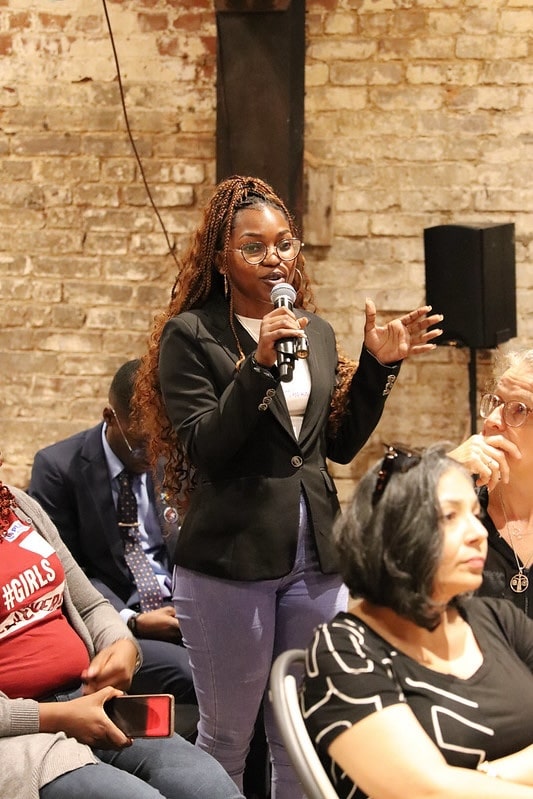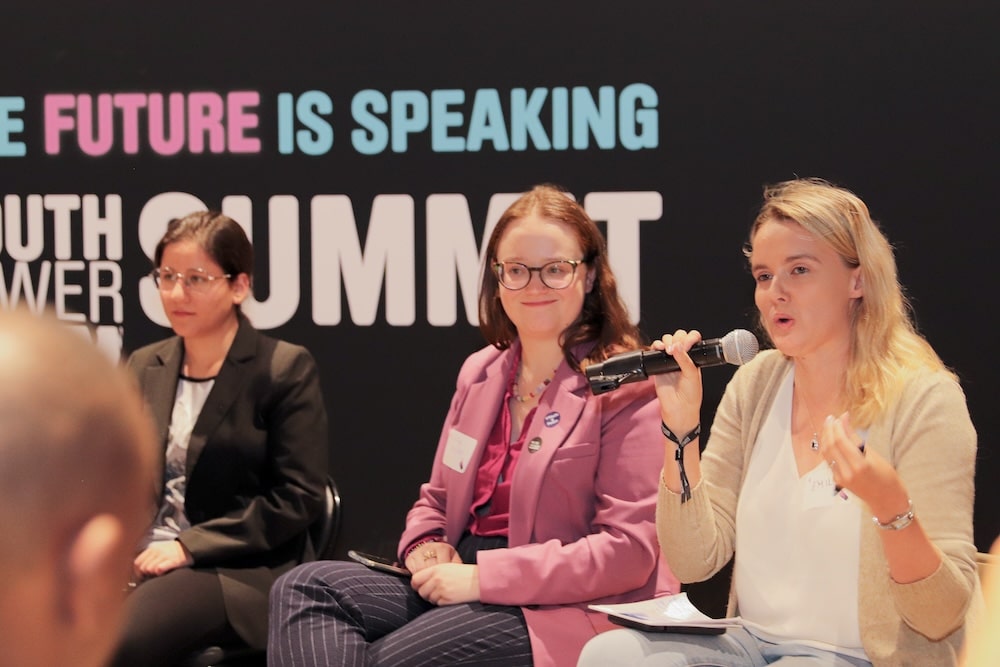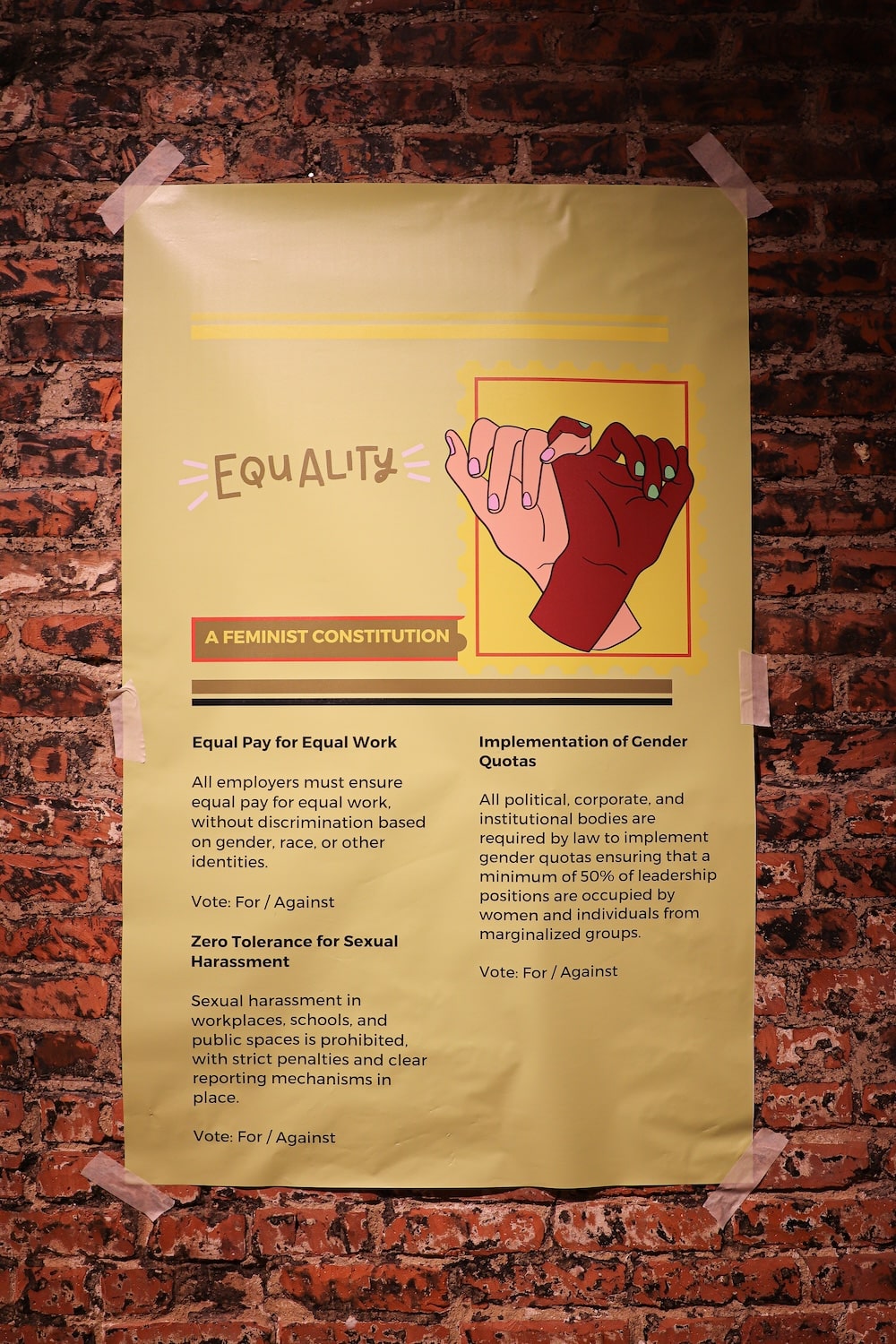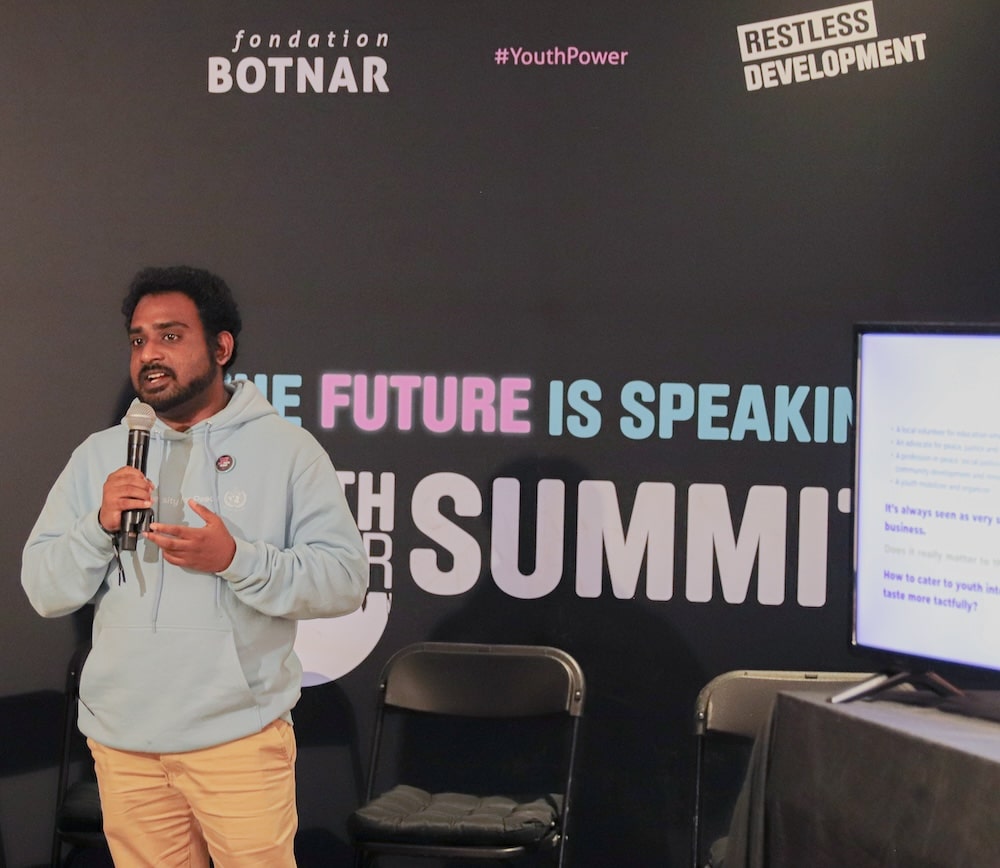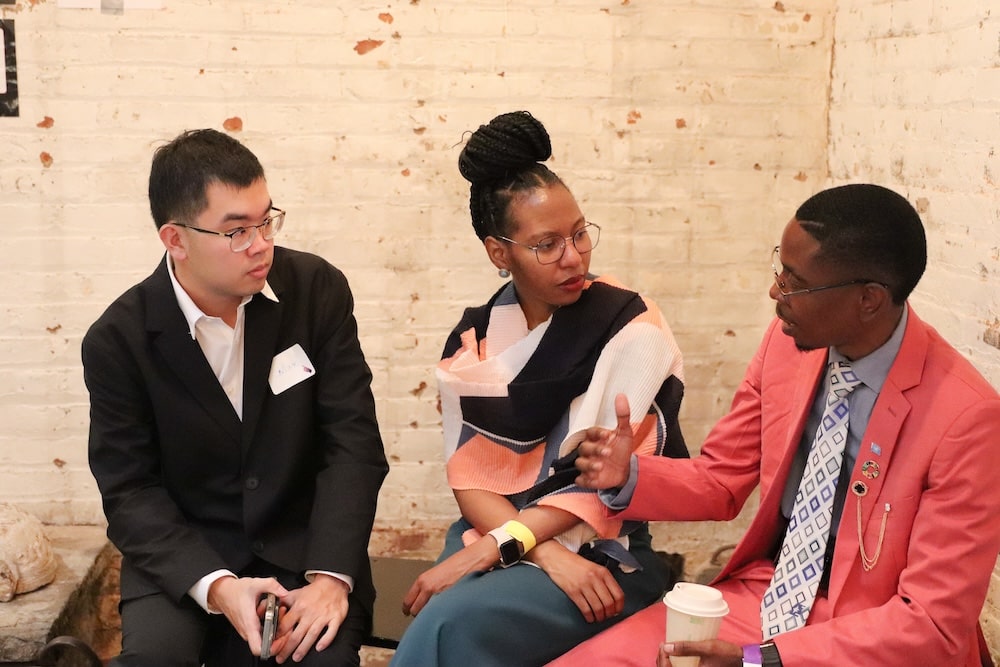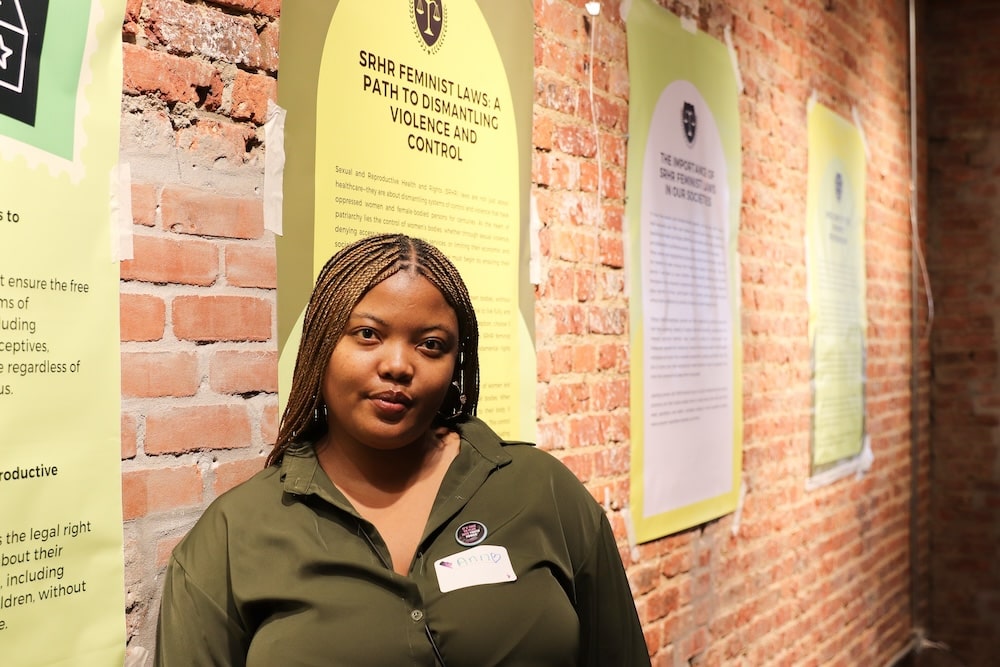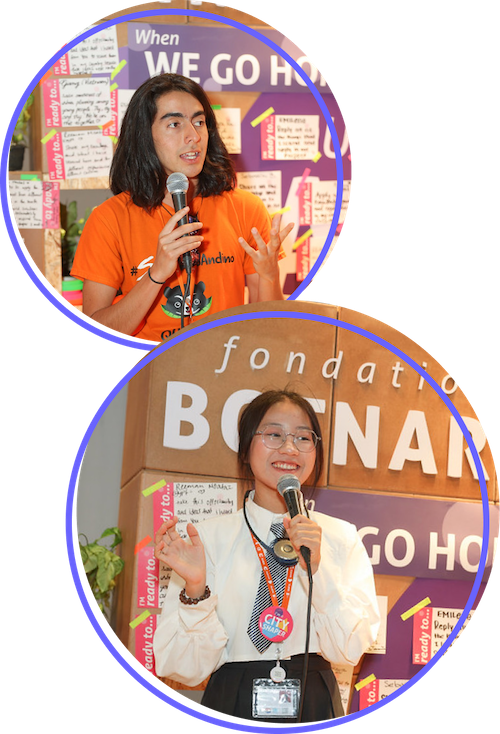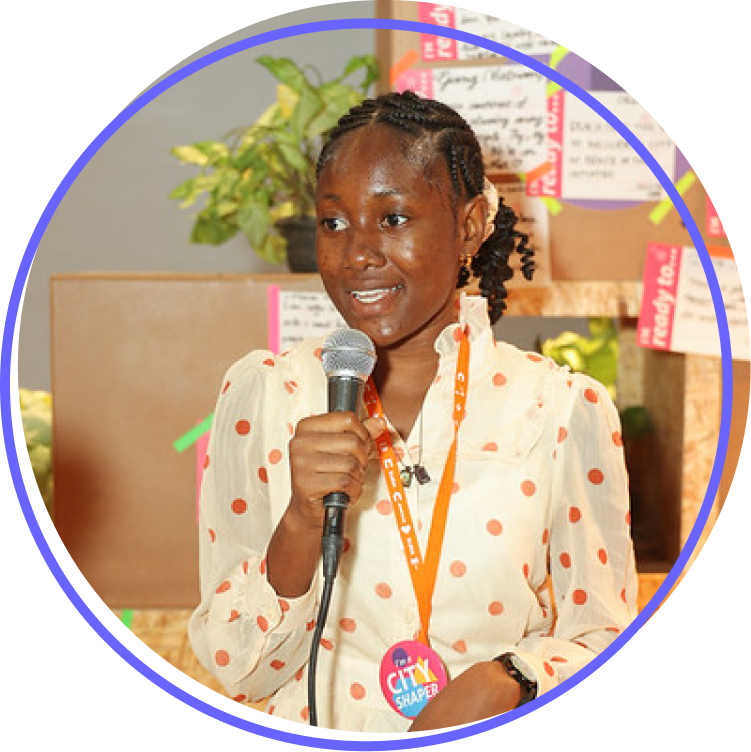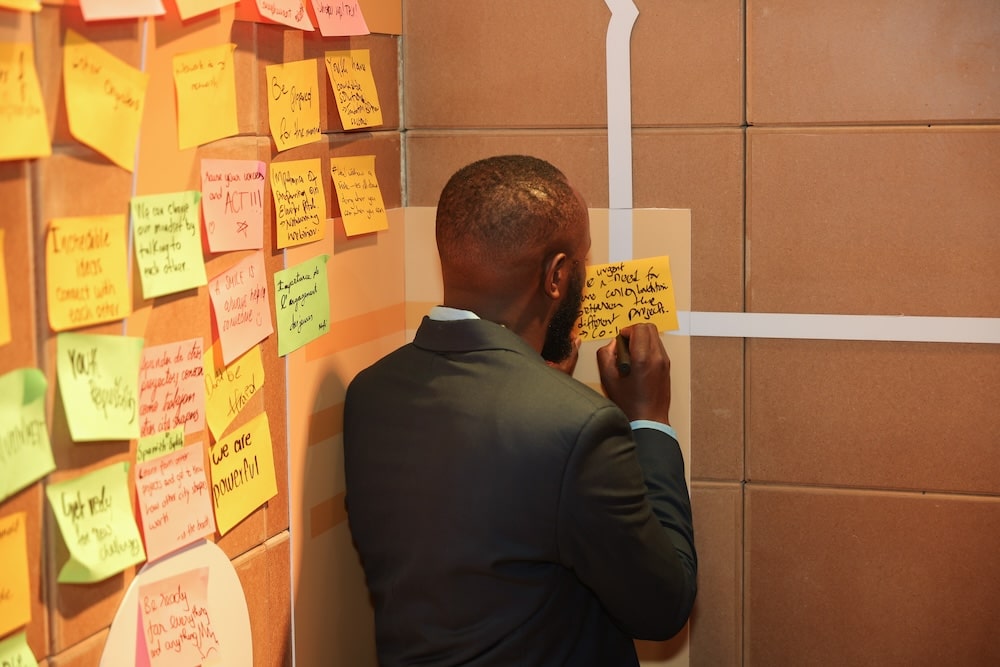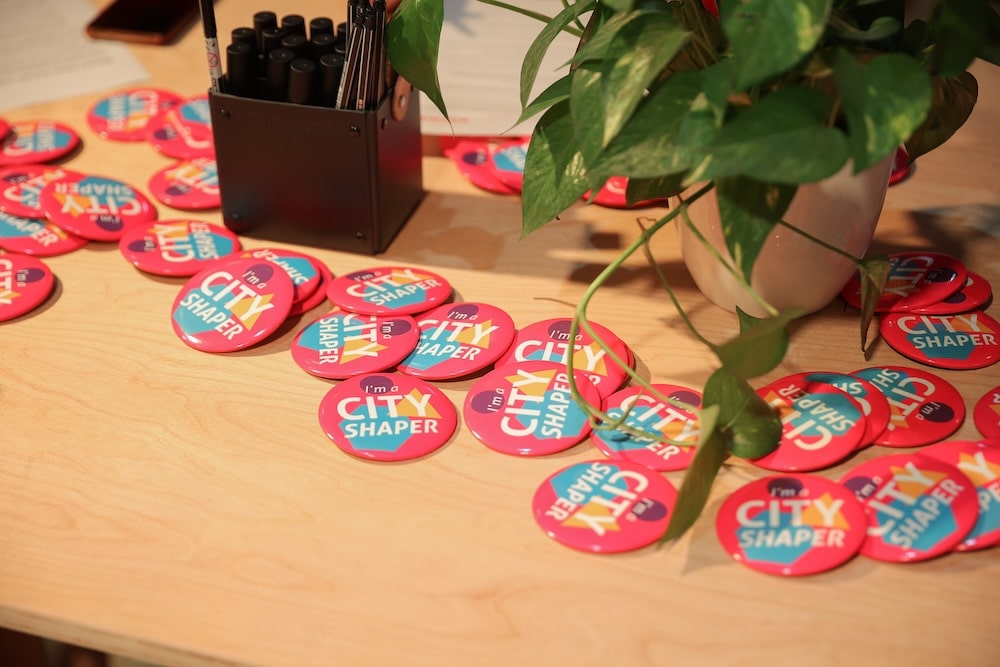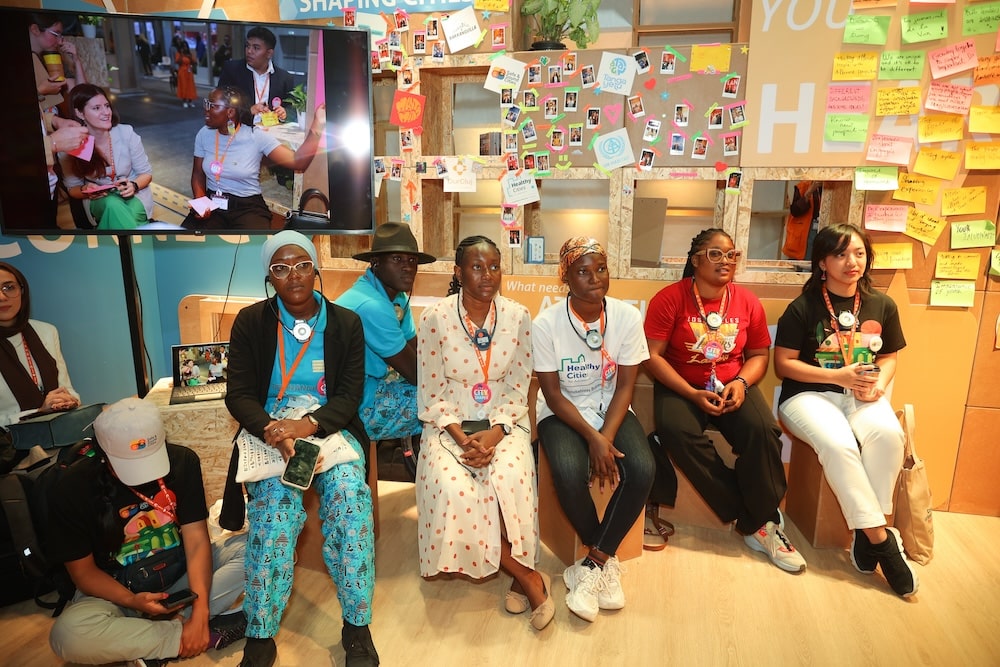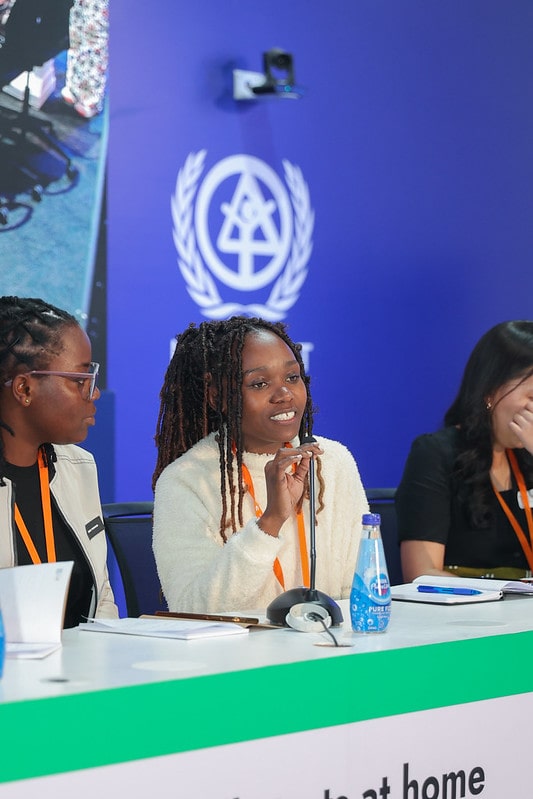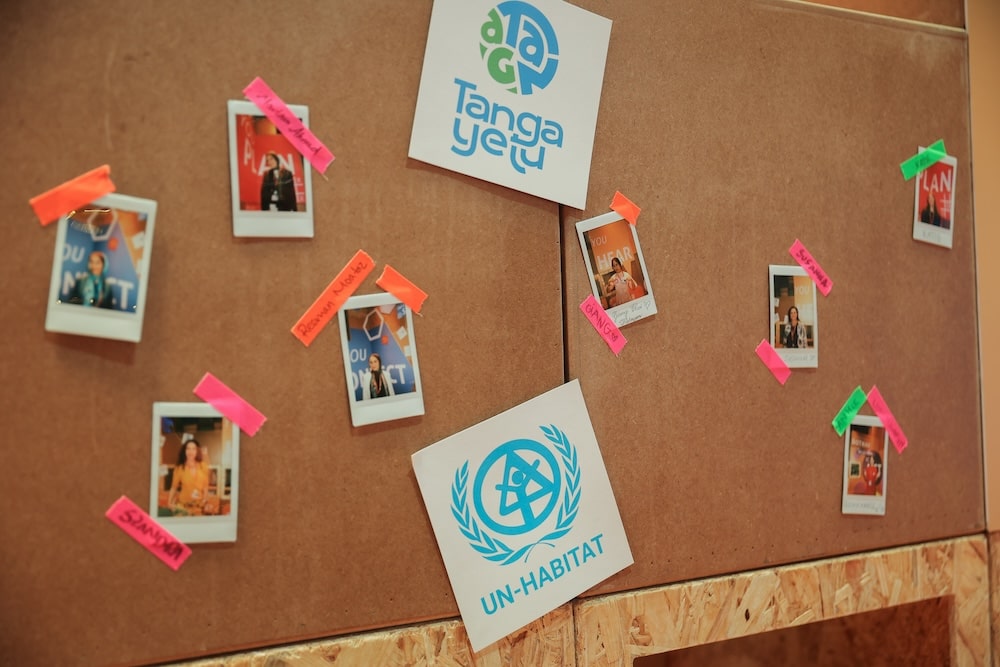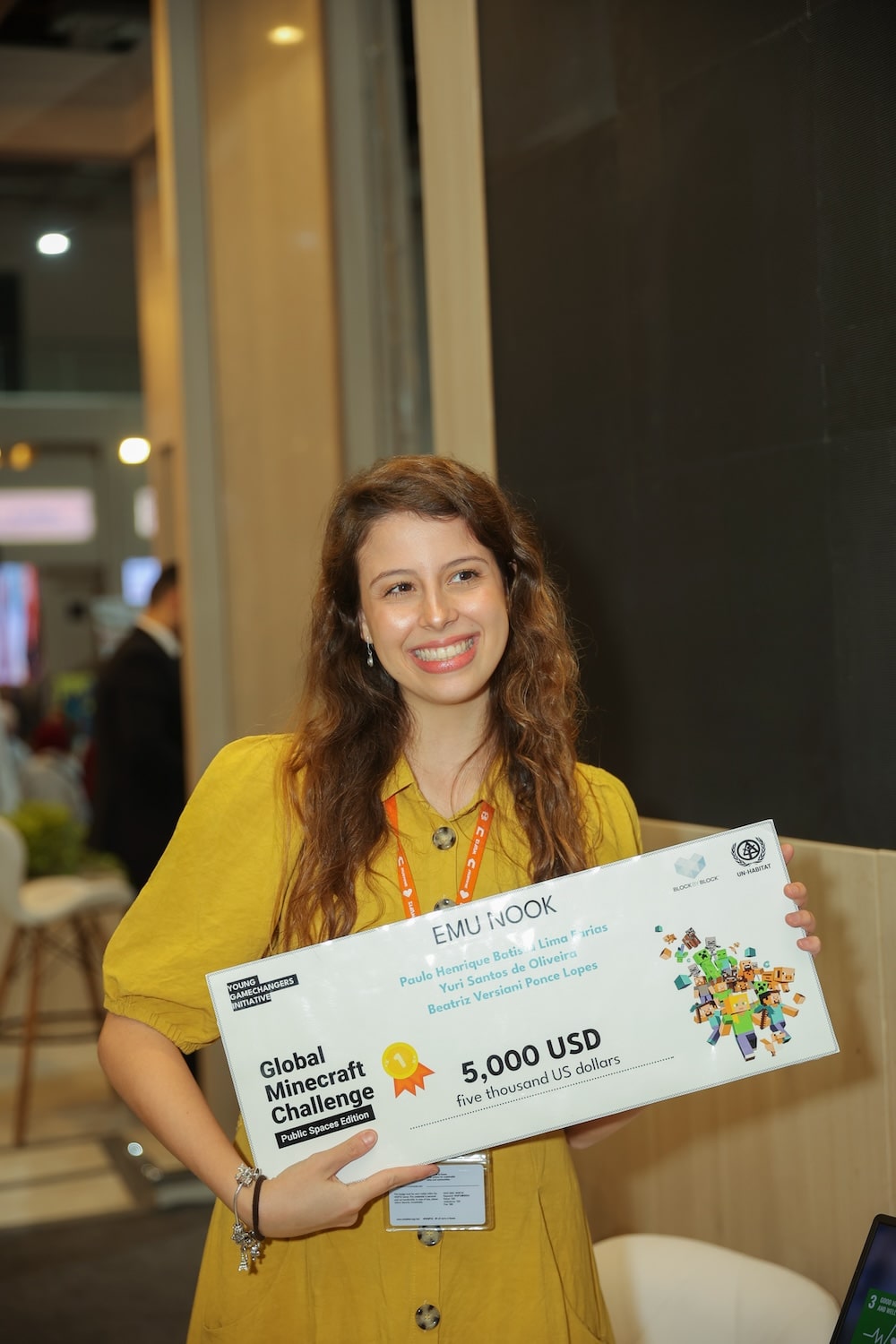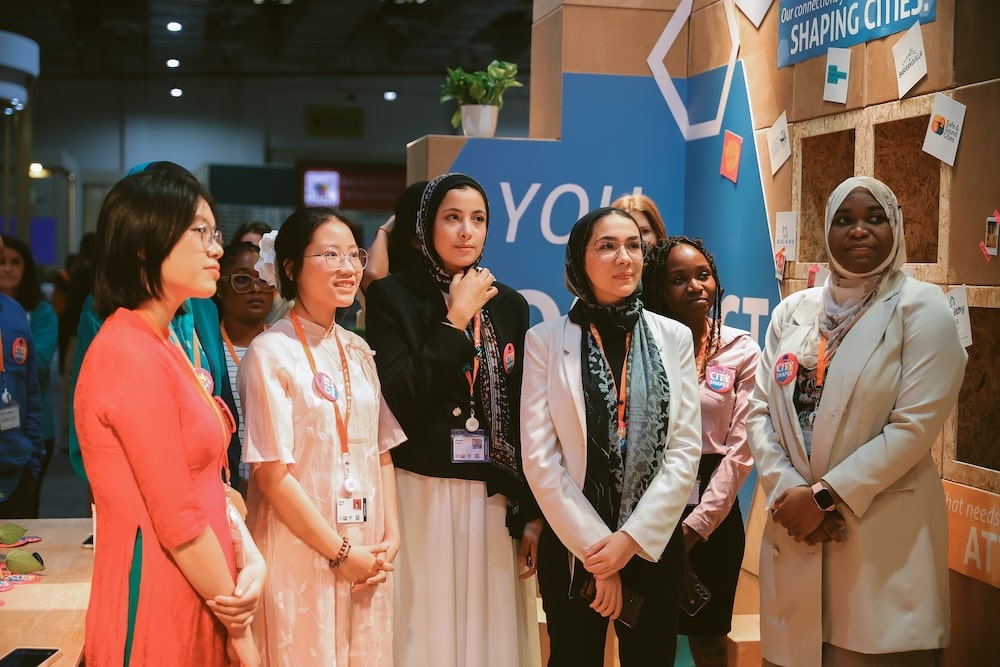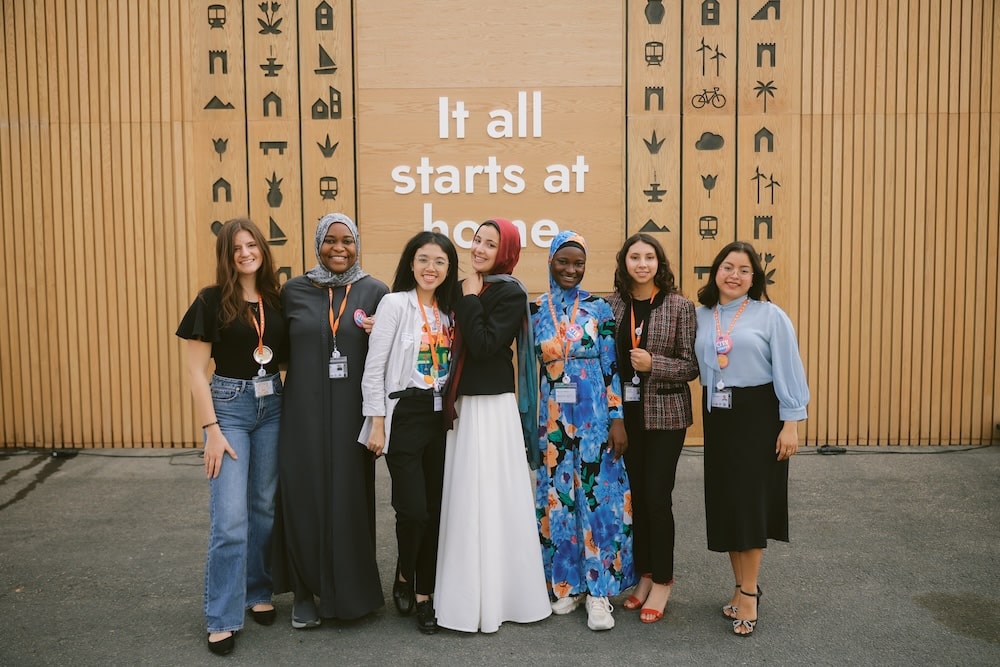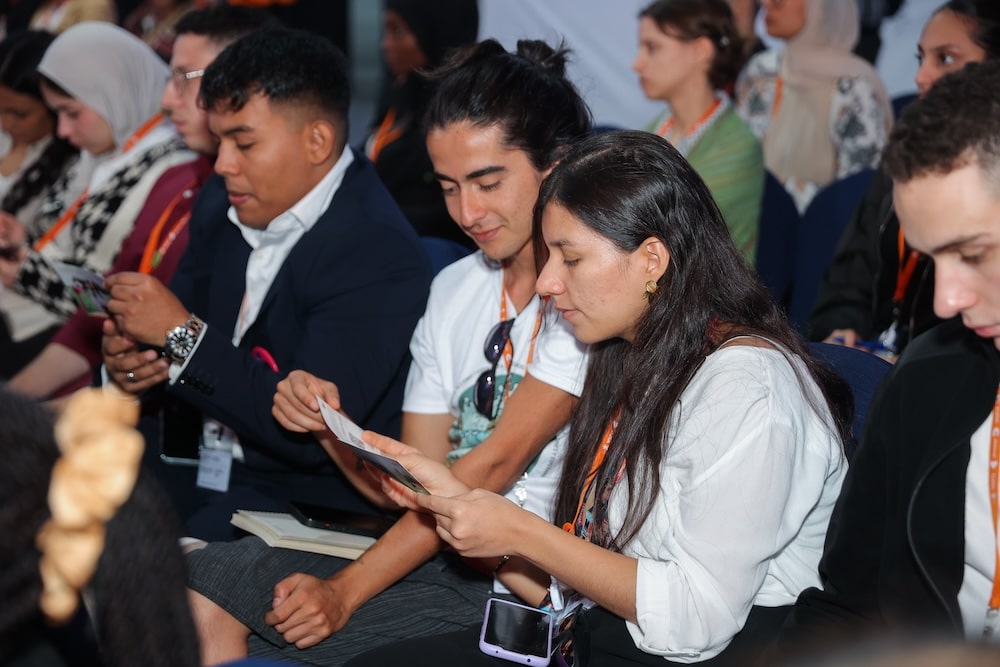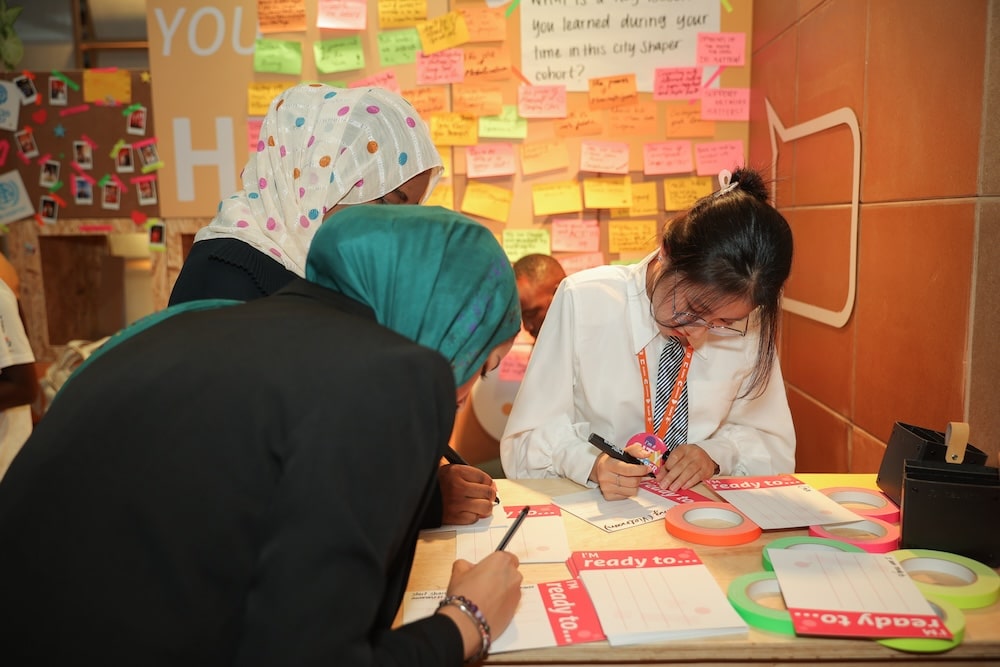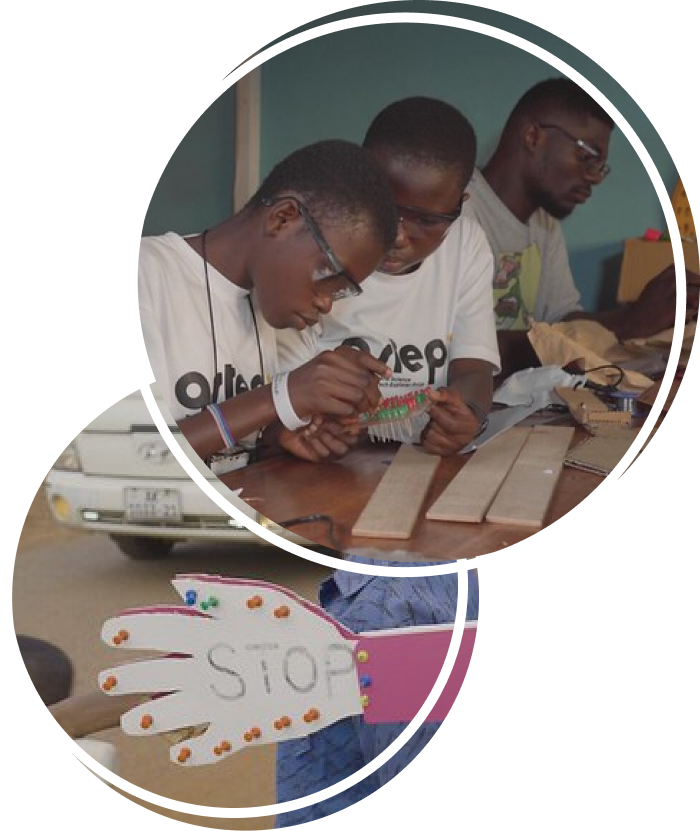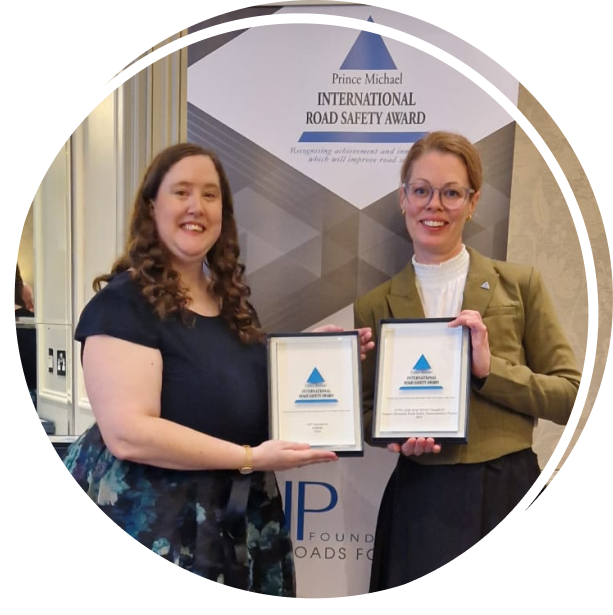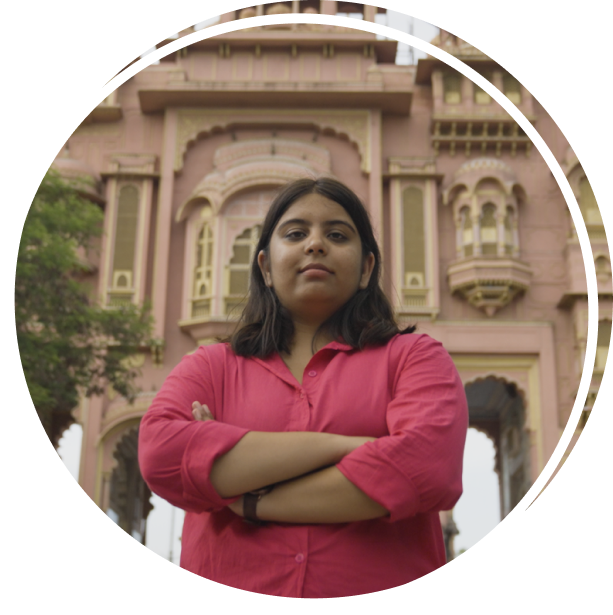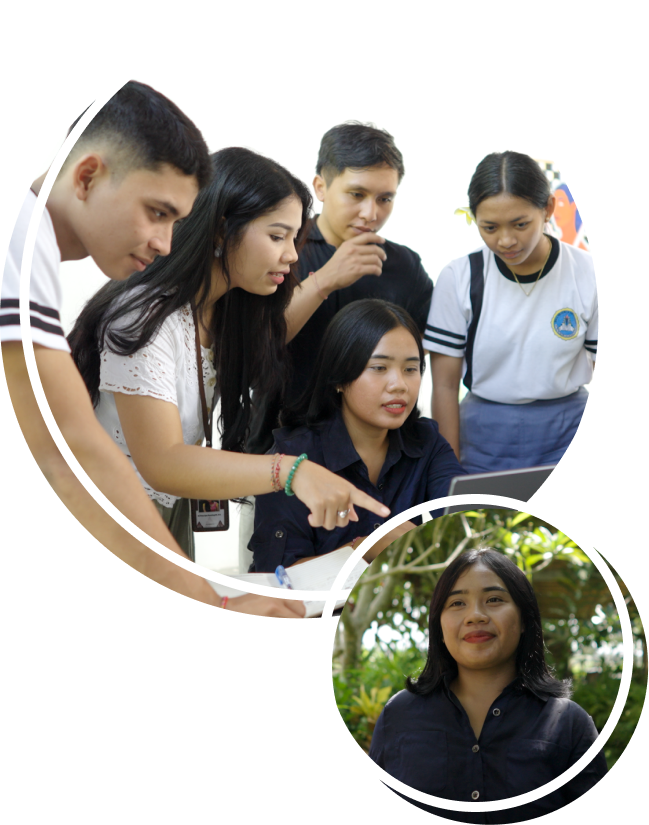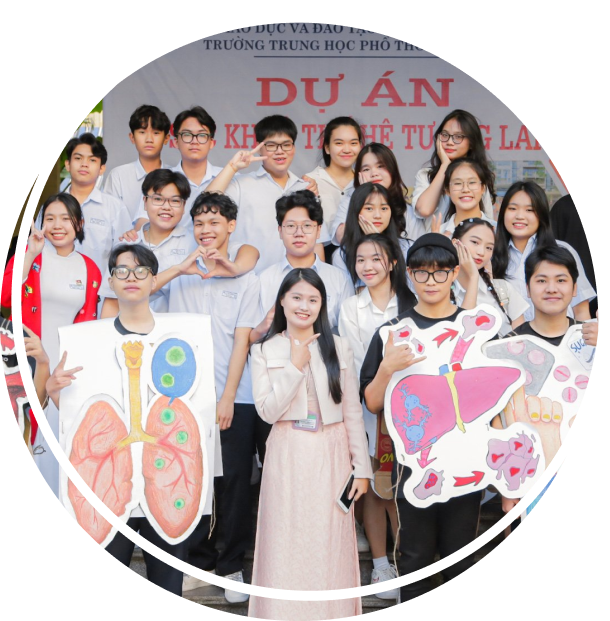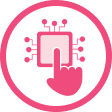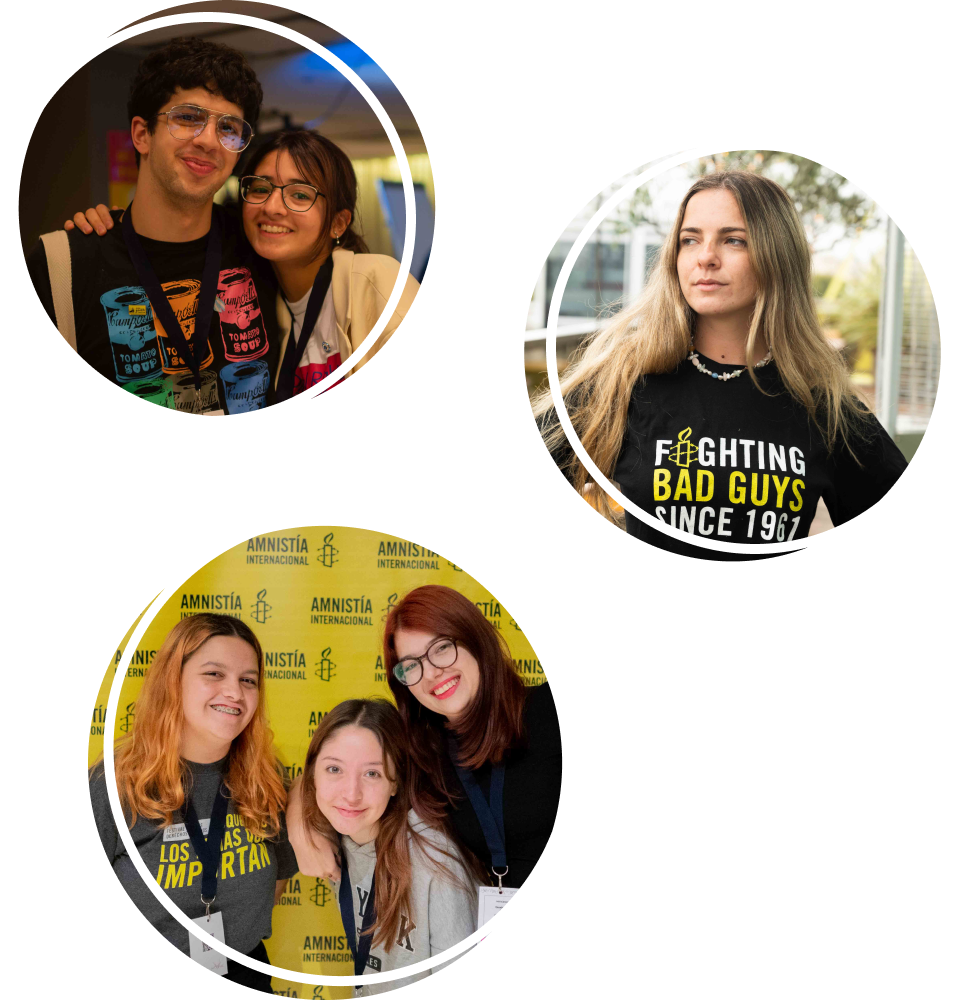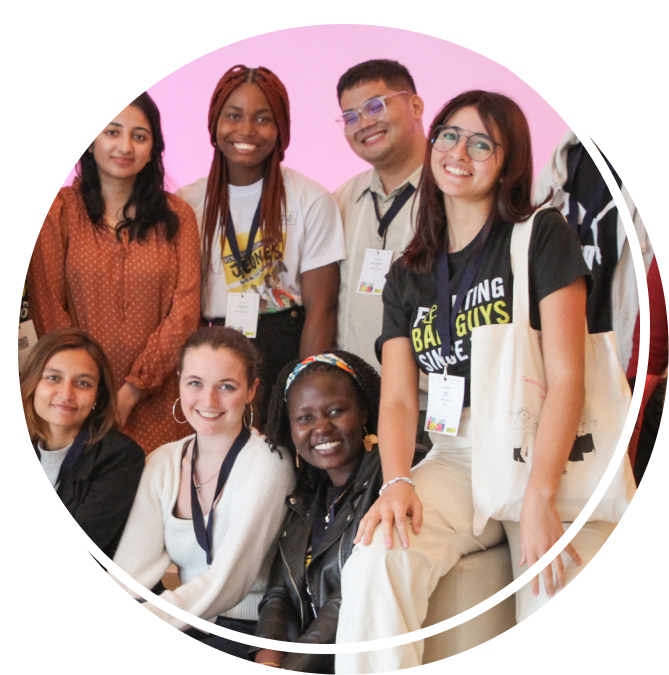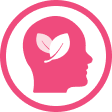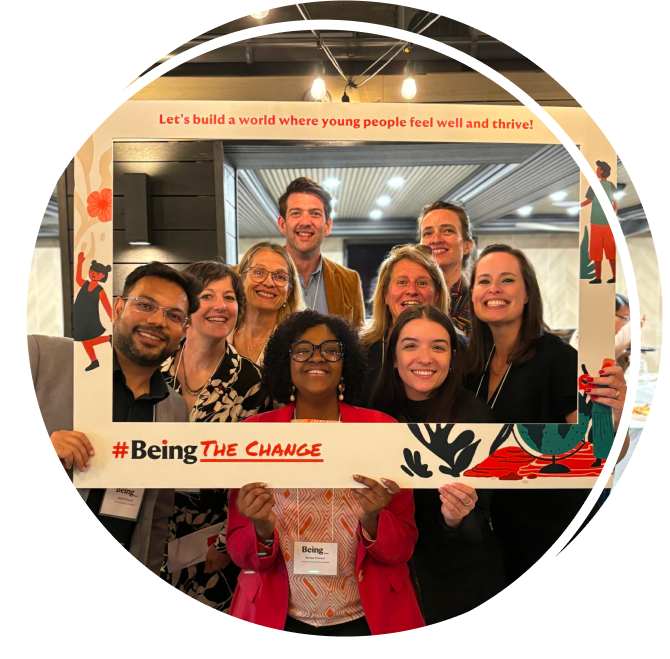In this blog, you’ll meet Fondation Botnar’s Young Professionals, Manuel and Illan. They started with us last year and we have asked them about their work, passions, and learnings so far.
Tell us a bit about yourselves and what you are working on during your first year at Fondation Botnar?
Illan: I grew up in Geneva in a multicultural environment with family members from different countries and continents. After first focusing on migration, I moved to the human rights field, working with the United Nations in New York, Geneva, Uganda, and several West African countries. This was an enriching but at times challenging experience, and although Fondation Botnar challenges me too, I have more space to explore what I am passionate about creatively. My focus is to develop a program on digital literacy education that aims to prevent the negative impact of disinformation, hate speech, and harmful targeted advertising on young people. I also support colleagues in taking a human rights-based approach in their respective areas and review human rights-related grant applications and publications. I have co-authored an opinion piece that kicked off the launch of a year-long content series on youth, rights, and responsibilities in the digital age with Devex and I took part in a live event on Instagram on the same topic.
Manuel: I grew up in Basel and used to walk by what is now our office building many times when it was still a printing house. My academic background is between sociology and geography, focusing on urban systems. I’m fascinated by urban areas that fall outside the realm of formal planning rationalities. Swiss cities typically take a more traditional approach to city planning, but I had the opportunity to work on a participatory urban redevelopment project in Kampala during the last couple of years. This was a challenging and rewarding journey and I can build on many of the learnings for what I do now. At Fondation Botnar, I support our “cities fit for young people” work. I’m in the lead of creating a multi-year program on urban food systems. Essentially, the program works towards contributing to a relationship between food and the city that benefits both human and planetary health. It’s a captivating topic where I can build on my expertise around urban systems and at the same time learn about so much more. I’m also involved in many other areas at Fondation Botnar, as we strive to facilitate learning across all our workstreams.
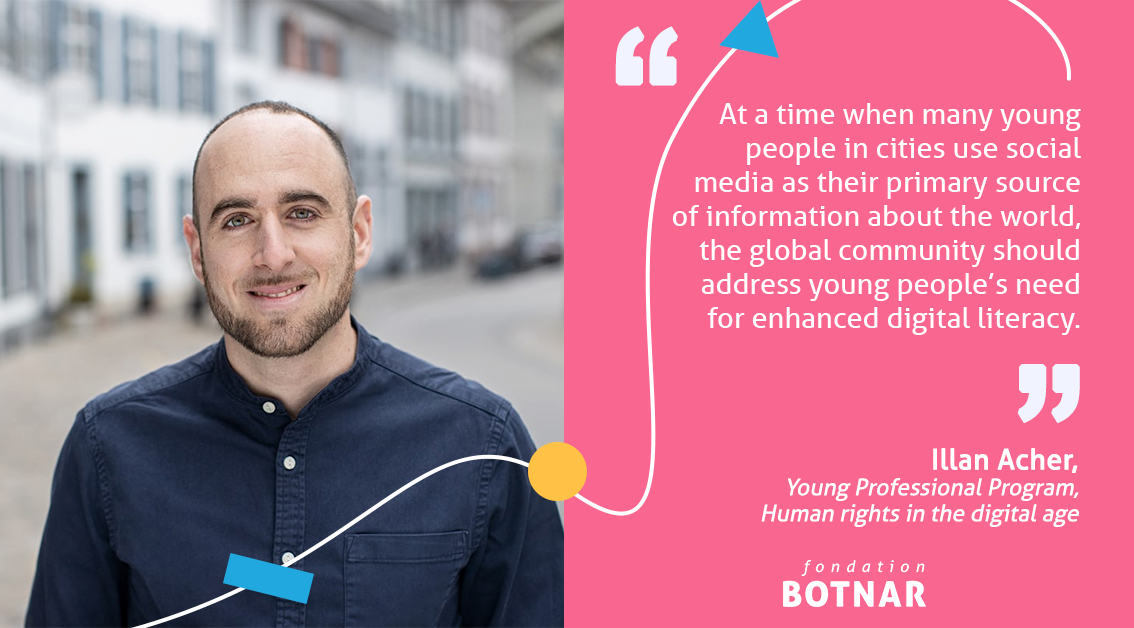
What are you passionate about?
Illan: I am passionate about the diversity of cultures, lived experiences, and how young people learn to make sense of the world and their place in it. In particular, I am interested in the intellectual and emotional processes through which young people become familiar with global issues – such as human rights and sustainable development – and connect them to their situations at the local level. When education aims to be transformative and focuses on acquiring critical skills, it can make an essential contribution to social cohesion by strengthening democratic values and a sense of responsibility for other people’s wellbeing and the planet.
Manuel: I am passionate about making sense of societies, cultures, and languages different from mine. I’ve taken every chance I got to live, work, or study abroad. As a sociologist, I learned to first observe rather than judge or change. There is an underlying reason in every social pattern and order beneath all that seems chaotic at first. Nothing is obvious; everything has a history and digging into those layers sometimes really exhilarates me. It’s also a great way of putting some context around what you tend to take for granted.
A more straightforward passion of mine is playing football. It’s something I’ve done since I could walk, and I found that the universal rules of the game have always been a brilliant shortcut to social integration and friendships for the times I had to find my way around foreign countries.
What have been some of your learnings from your first months at Fondation Botnar?
Illan: I have expanded my knowledge of human rights challenges in the digital space and of aspects linked to digital literacy and transformative education. I have also gained experience working as part of an organisation with a management structure that was new to me. Fondation Botnar follows a Teal organisation model, which relies on the self-management of team members, and follows a holacracy method allowing staff members to join circles and take on roles across the office rather than being bound by a strict job description. I have enjoyed the sense of freedom and self-efficacy that comes with this structure.
Manuel: This will now sound like a terrible cliché, but each day at the foundation is a learning journey and this is what I love most about this opportunity. Each exchange with our incredibly varied network of partner organisations and grantees is an opportunity for me to learn about both challenges and solutions. It’s truly fascinating and encouraging to see the spirit and creativity of so many people collaborating around different challenges. I’ve also learned a lot from my colleagues. Our team combines highly diverse backgrounds and professional journeys. Often the way my colleagues look, think, and talk about things is very different from how I would go about it. This makes collaboration perhaps not always straightforward, but at the end of the day there is a lot of added value in that and it’s a great source of inspiration that helps me reflect on my own way of thinking.
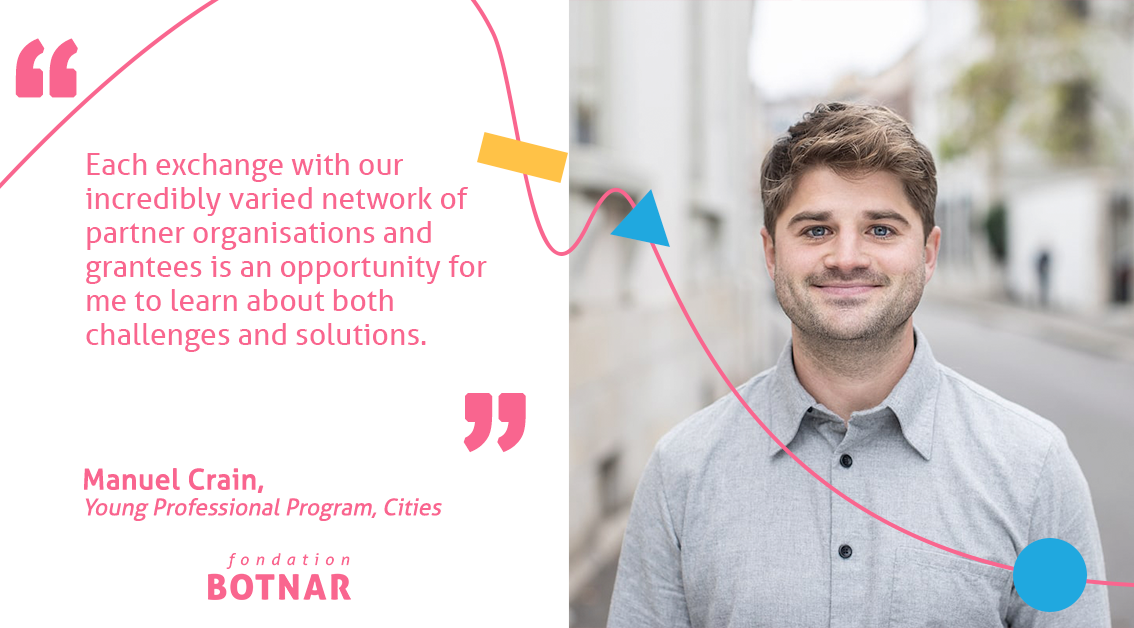
What are you up to when you don’t work for Fondation Botnar?
Illan: I have been spending a lot of time in Geneva during the pandemic which has allowed me to spend time with family members and old-time friends, after several years spent outside Switzerland. I enjoy attending art performances, dance and theater shows, film festivals, conferences, and political events. I also started exercising with CrossFit, something I share with my fellow young professional Manuel. Finally, I am taking a 2-year executive course at the University of Geneva (MAS in International Education & Research), which is fitting nicely with the more practical work I do with Fondation Botnar.
Manuel: Sports has always played a huge role in my life and these days more than ever I need to counter my screentime with movement outdoors. I love to play football, go rock climbing and, sometimes on weekends, I explore hidden alpine valleys with skis or just a pair of binoculars. I’ve also been deeply interested in blockchain and cryptocurrencies for many years now and spend a great deal of time trying to make sense of the space – and I’m still confused. When I stay in the city, I do what any other social animal does – I hang out with friends and family, go out, eat, drink, talk, laugh and just take in the city vibe.
What do you think the philanthropic community can do better to accelerate change for young people in cities?
Illan: At a time when many young people in cities use social media as their primary source of information about the world, the global community should address young people’s need for enhanced digital literacy. Indeed, if change is to happen, young people must be able to critically assess information produced and disseminated online. For instance, when young people lack the ability to distinguish truthful from untruthful information, content denying the existence of climate change can prevent them from taking informed decisions to mitigate its effects.
Manuel: I would say adapting a specifically urban lens in the first place. From my experience, many organisations in the sector tend to shy away from explicitly working within and on city systems. Cities are complex, constantly changing, sometimes messy and generally overwhelming. But that’s exactly what makes them so fascinating. I believe working within city systems requires you to work together and apply a long-term lens. This is where we can still do much better. The multitude of stakeholders and the many simultaneous and interlinked forces that shape today’s cities also make it difficult to put a number and clear label on the results of your intervention. I don’t think this is negative, but I believe the philanthropic sector needs to get more comfortable with that fact.
